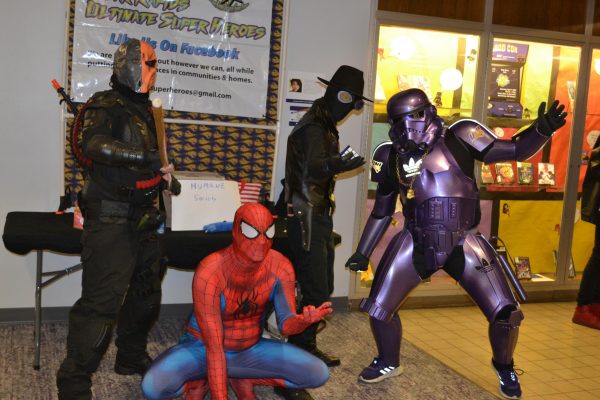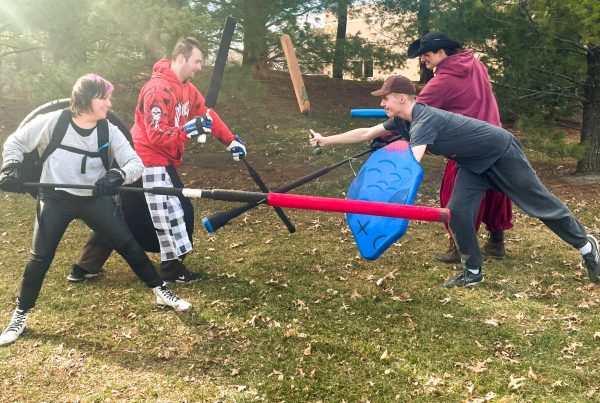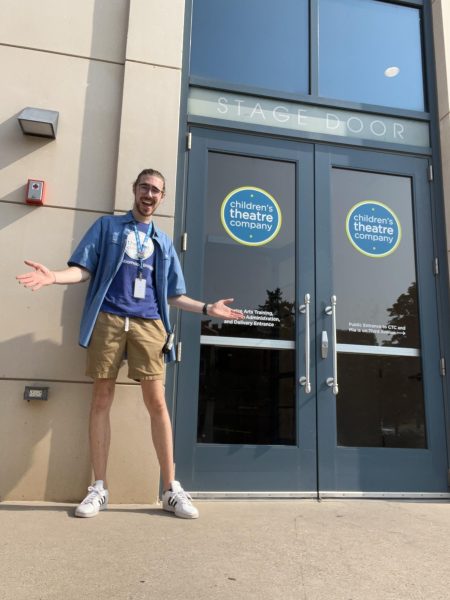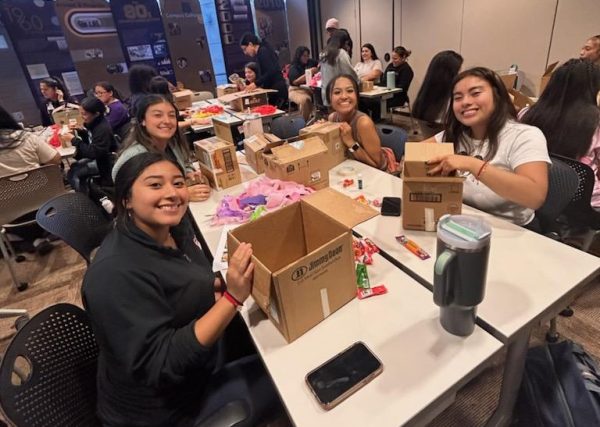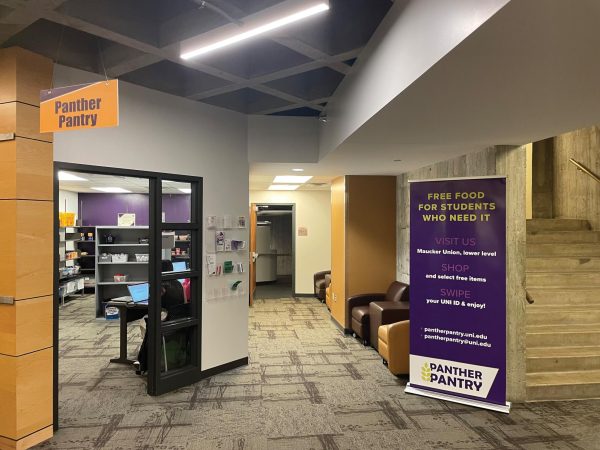Filmmaker to speak on sex trafficking
Feb 5, 2018
This week, UNI alum Vanessa McNeal is returning to campus to discuss her film, “Gridshock.”
McNeal, who received a master’s degree in social work from UNI, will be speaking in the Old Central Ballroom in the Maucker Union at 7 p.m. on Tuesday, Feb. 6.
A play on the word “gridlock,” the feature-length documentary investigating Iowa’s sex trafficking industry, will be co-directed by McNeal and Alex Schuman, with cinematography by Taylor Bluemel.
“I think once you learn more about what sex trafficking is, it’s really hard not to want to do something about it,” McNeal said. “Once I learned more, I was so compelled to share this information because I was just shocked to know that most people don’t know about this.”
McNeal has produced three documentaries, all focused on the issue of sexual violence. Her first film, “I AM,” told her own story of defeating abuse and adversity.
After the positive response to “I AM,” McNeal created two more documentaries during her time at UNI, with one focusing on student survivors — four of whom were from UNI — and the other telling the story of male survivors.
Through the years, the Sigma Phi Epsilon (SigEp) fraternity has partnered with McNeal to screen her films and host Q&A panels on campus.
“The way she does her documentaries really opens up truth about how often this happens and the fear that these people have,” said Hunter Flesch, senior elementary and middle level education major and member of SigEp. “She’s really good at educating people on how to support people who’ve been assaulted, how to go about filing reports. She’s just really educational in her documentaries as well, and the stories are so vivid.”
SigEp advocates for sexual assault awareness in an attempt to counter the negative stereotypes surrounding fraternities and abuse of women, according to Flesch. After learning Vanessa’s story, SigEp brought her work to UNI students for the first time in 2015.
“We decided, wow, this would be a really good opportunity to show her story off and really bring it home for students because she’s connected to our campus,” Flesch said.
This time, however, McNeal is visiting UNI without a finished film to screen.
“Gridshock” is in the midst of an all-or-nothing fundraising campaign, with 60 days to meet a goal of $35,000. If that figure is not reached by Feb. 9, all donors will be refunded and the documentary will not be produced.
“Films cost a lot of money to make,” McNeal said. “In the grand scheme of film, we have a very small budget, but we still need the adequate resources in order to make this film the best that it can be.”
Flesch urged students to support “Gridshock” by hearing McNeal speak on Tuesday.
“She’s an incredible speaker, just to hear her story and how passionate she is,” Flesch said. “Learn more about the stories that are happening literally in Cedar Falls, in Des Moines, in Iowa. It really hits home for people because these could be your neighbors; these could be people you could have known.
“And there’s food!” Flesch added.
If its fundraising goal is met, production for “Gridshock” will begin in the spring, with its anticipated release in October of 2018.
“[Sex trafficking] is a criminal organization, so it’s dangerous to investigate and to look into,” McNeal said. “So, that’s a huge challenge, and everyone that’s working on this filming has a level of risk involved.”
Despite the danger, McNeal is determined to expose the underground industry. As of press time, “Gridshock” had raised 78 percent of its goal, with five days remaining.
“I think this documentary needs to happen A), to educate people on the signs of potential sex trafficking, but also B), to share the stories of people because they’re not being told,” Flesch said. “These people have to live in fear constantly. People who have been sex trafficked are under an immense amount of fear, an immense amount of pressure, [and] receive threats.”
“I think where we’ve really screwed up in the world of sex trafficking is that we’ve criminalized the victim survivors, and we’ve labeled them as prostitutes,” McNeal said. “So, I’m excited about giving them a voice because they’re victims and they’re survivors; they’re not criminals. I am excited to let them shed light on this and just to raise awareness and hopefully be able to prevent sex trafficking in the future.
“I mean, I’m not naive to think that this film will completely eradicate it,” McNeal added, “but I’m hoping that this film will play a part in making Iowa the hardest place to let this continue.”

















